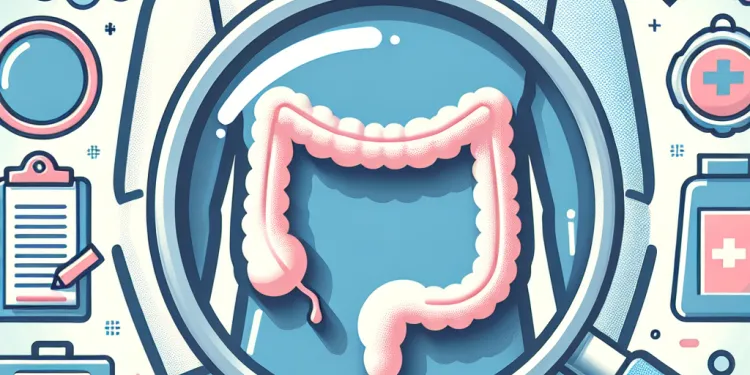
Find Help
More Items From Ergsy search
-
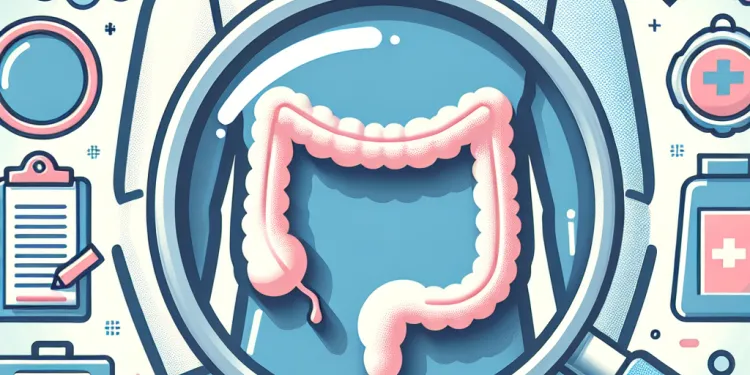
How is Crohn's disease diagnosed?
Relevance: 100%
-

Is Crohn's disease contagious?
Relevance: 95%
-
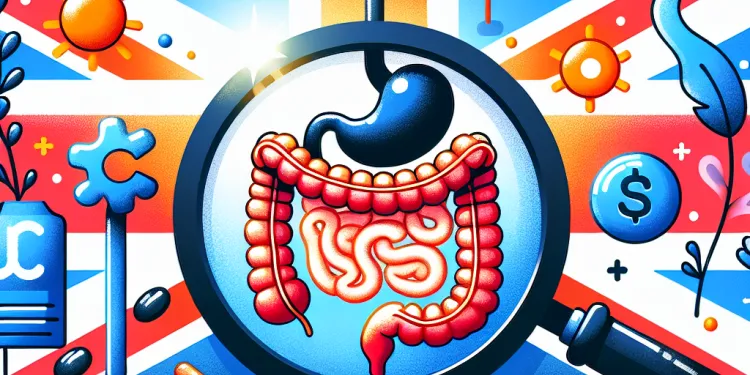
Is there a cure for Crohn's disease?
Relevance: 95%
-

What are the common symptoms of Crohn's disease?
Relevance: 94%
-

Can children develop Crohn's disease?
Relevance: 93%
-

What is Crohn’s disease and how is it treated?
Relevance: 90%
-

What causes Crohn's disease?
Relevance: 89%
-

Who is at risk of developing Crohn's disease?
Relevance: 87%
-
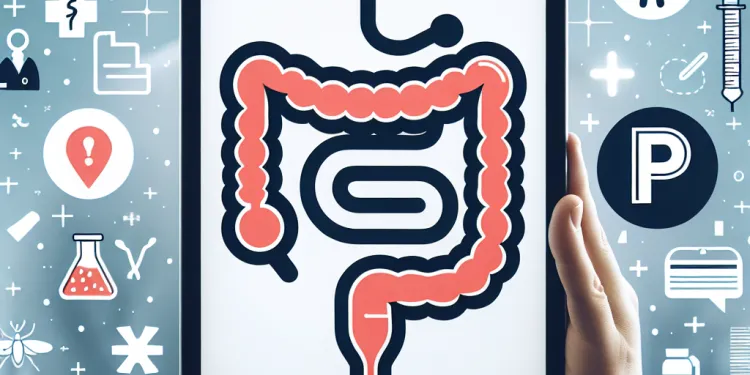
Is surgery necessary for Crohn's disease?
Relevance: 87%
-
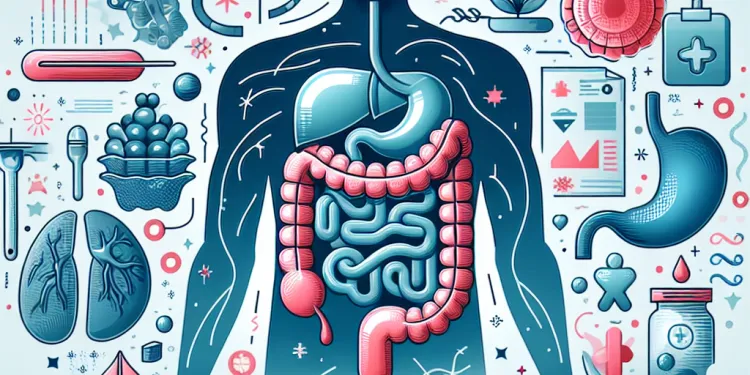
Are there any complications associated with Crohn's disease?
Relevance: 85%
-

What support is available for people with Crohn's disease in the UK?
Relevance: 85%
-

What is the best diet for Crohn’s disease?
Relevance: 85%
-
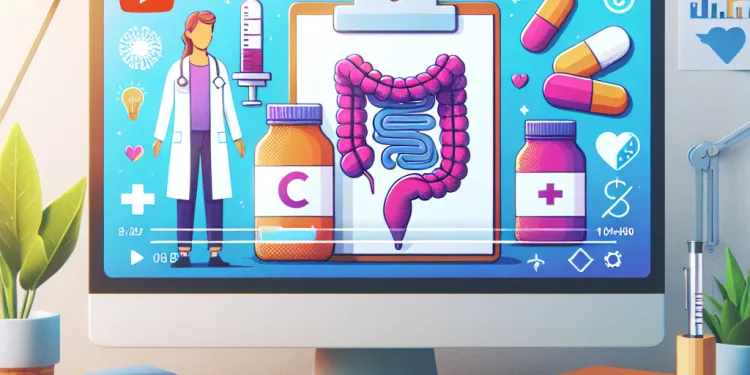
What treatments are available for Crohn's disease?
Relevance: 84%
-

Can stress make Crohn's disease worse?
Relevance: 83%
-
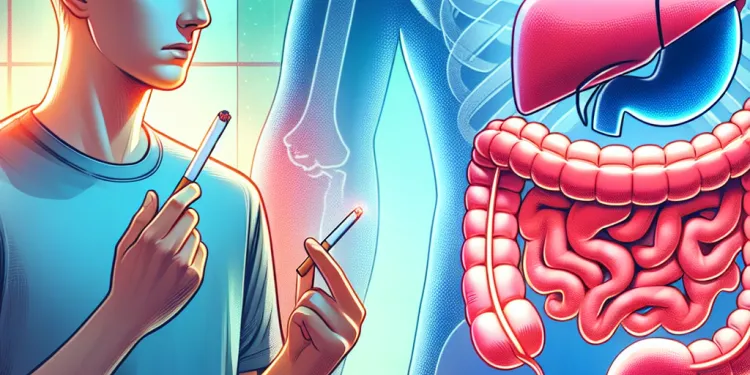
How does smoking affect Crohn's disease?
Relevance: 83%
-

What dietary changes can help manage Crohn's disease?
Relevance: 77%
-
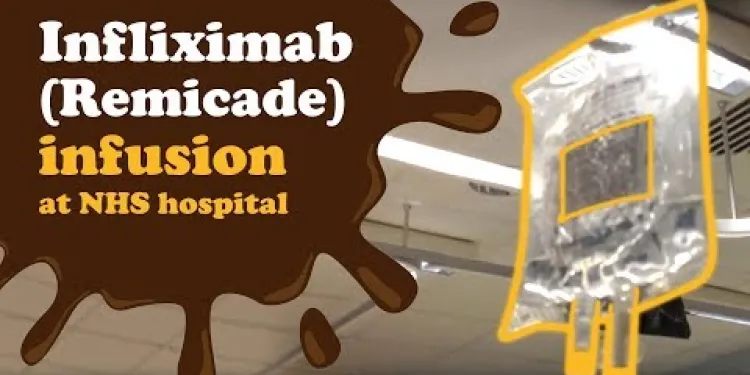
Infliximab infusion (Remicade) for Crohns Disease at Addenbrookes NHS hospital
Relevance: 69%
-

What is the life expectancy after a motor neurone disease diagnosis?
Relevance: 52%
-

How is Huntington's disease diagnosed?
Relevance: 43%
-

Prostate cancer diagnosis and tests
Relevance: 43%
-
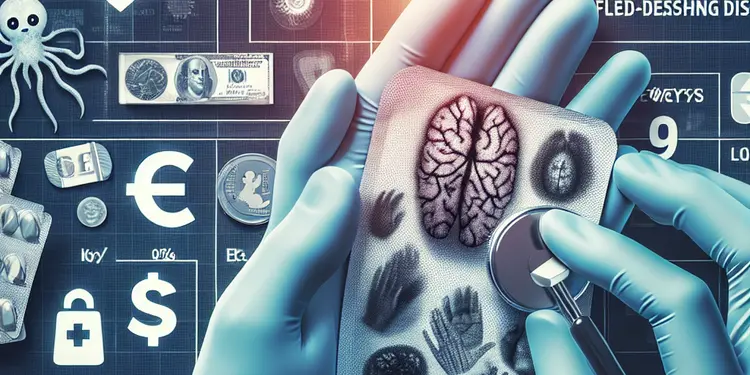
How is flesh-eating disease diagnosed?
Relevance: 41%
-

BSL - Diagnosis of panic disorder
Relevance: 41%
-
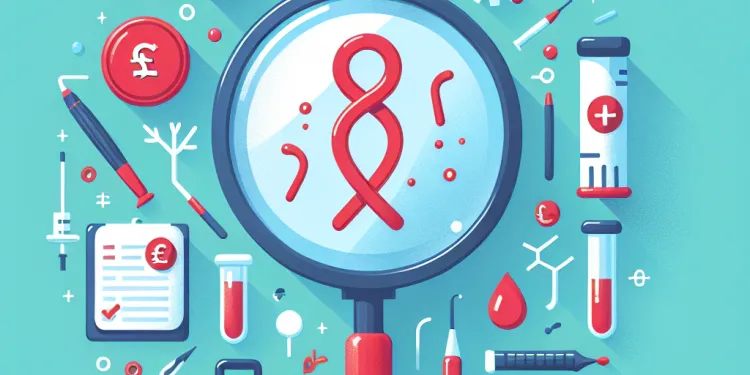
How is sickle cell disease diagnosed?
Relevance: 40%
-

Head and Neck Cancer Diagnosis
Relevance: 39%
-
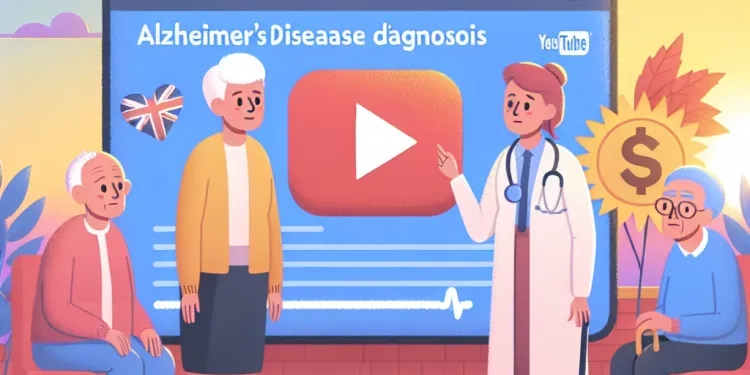
How is Alzheimer's disease diagnosed?
Relevance: 39%
-

How is motor neurone disease diagnosed?
Relevance: 39%
-

Coeliac disease
Relevance: 39%
-

Coeliac Disease: Session 1: What is Coeliac Disease?
Relevance: 38%
-

What tests are available for diagnosing Lyme disease?
Relevance: 38%
-

BSL - Diagnosis of obsessive compulsive disorder (OCD)
Relevance: 38%
-

What is motor neurone disease?
Relevance: 38%
-

What is Huntington's disease?
Relevance: 38%
-

How is Marburg virus disease diagnosed?
Relevance: 38%
-

Are AI systems used alone in lung cancer diagnosis or alongside human radiologists?
Relevance: 37%
-

What is a flesh-eating disease?
Relevance: 37%
-

Lyme disease: What is it?
Relevance: 36%
-

What is Mitochondrial disease?
Relevance: 36%
-

Liver disease | NHS
Relevance: 36%
-

What research is being done on Huntington's disease?
Relevance: 36%
-

Attention deficit hyperactivity disorder (ADHD) - Diagnosis
Relevance: 36%
How is Crohn's Disease Diagnosed?
Understanding Crohn's Disease
Crohn's disease is a chronic inflammatory bowel disease (IBD) that can affect any part of the gastrointestinal tract, though it most commonly impacts the end of the small intestine and the beginning of the colon. Diagnosing Crohn's disease can be challenging because its symptoms often overlap with other gastrointestinal conditions. In the United Kingdom, a variety of diagnostic tools and tests are employed to accurately identify the presence of Crohn's disease.
Initial Assessment and Medical History
The diagnosis of Crohn's disease typically begins with a thorough review of the patient's medical history and a discussion of symptoms, such as persistent diarrhea, abdominal pain, and weight loss. Healthcare professionals in the UK will take into account any family history of inflammatory bowel diseases and examine the patient for physical signs of Crohn's, such as abdominal tenderness or a mass.
Laboratory Tests
To support a diagnosis of Crohn's disease, blood tests are often conducted to look for indicators of inflammation, such as an elevated C-reactive protein (CRP) level or a high white blood cell count. Additionally, stool tests may be performed to rule out infections or other causes of gastrointestinal symptoms. Calprotectin testing on stool samples can indicate intestinal inflammation, which is common in Crohn's disease patients.
Endoscopic Procedures
Endoscopy is a key diagnostic tool for Crohn's disease. During a colonoscopy, doctors can visually inspect the colon and the terminal ileum for inflammation, ulcers, or other abnormalities typical in Crohn's disease. Biopsies are often taken during this procedure to examine the tissue microscopically for characteristic signs of the disease. In some cases, an upper endoscopy or capsule endoscopy may be conducted to evaluate the small intestine further.
Imaging Tests
Imaging studies, such as Magnetic Resonance Imaging (MRI) or a CT scan of the abdomen and pelvis, are frequently used in the UK to obtain detailed images of the digestive tract. These tests can identify areas of inflammation, bowel wall thickening, or fistulas and help differentiate Crohn's disease from other conditions.
Conclusion
Diagnosing Crohn's disease involves a comprehensive approach that combines a detailed medical history, laboratory tests, endoscopic procedures, and imaging studies. In the UK, healthcare providers aim to confirm the diagnosis accurately to initiate appropriate treatment and mitigate the impact of the disease on the patient's quality of life. Early and precise diagnosis is crucial for managing symptoms and preventing complications associated with Crohn's disease.
How Do Doctors Know If You Have Crohn's Disease?
What is Crohn's Disease?
Crohn's disease is a sickness that makes your stomach and intestines sore. It often affects the end of the small intestine and the start of the colon. It is hard for doctors to tell if someone has Crohn's because it looks like other stomach problems. In the UK, doctors use different tests and tools to find out if someone has Crohn's disease.
First Step: Talking to the Doctor
Doctors start by asking questions about your health and symptoms. Symptoms may include going to the toilet a lot, stomach pain, and losing weight. The doctor will also ask if anyone in your family has similar problems. They look for signs, like a sore belly, to see if you might have Crohn's disease.
Tests on Blood and Poop
Doctors do blood tests to see if there is swelling in your body. They check things like C-reactive protein (CRP) and white blood cells. Stool tests (checking poop) help make sure there are no germs causing your symptoms. Calprotectin testing finds swelling in the belly, which is common if you have Crohn's.
Looking Inside You
Doctors use a camera to look inside your belly. This is called an endoscopy. During a colonoscopy, they check your colon and the end of the small intestine for swelling or sores. They might take tiny pieces of tissue to look at under a microscope. Sometimes, they use a different camera to check the small intestine.
Pictures of Your Belly
Doctors use special pictures, like MRI or CT scans, to see inside your belly without using a camera. These pictures show if there is swelling or thick parts in your intestines. It helps doctors know if it’s Crohn's or something else.
In Short
Finding out if you have Crohn's takes many steps, including health questions, blood and poop tests, looking inside your belly, and special pictures. In the UK, doctors work hard to make sure you get the right diagnosis. This way, you can start treatment soon and live a happier life. Knowing early helps manage Crohn's and stops more problems later.
Frequently Asked Questions
What is Crohn's disease?
Crohn's disease is a type of inflammatory bowel disease (IBD) that causes inflammation of the digestive tract, which can lead to abdominal pain, severe diarrhea, fatigue, weight loss, and malnutrition.
How is Crohn's disease initially suspected?
Crohn's disease is often suspected if a patient presents with symptoms such as persistent diarrhea, abdominal pain, unexplained weight loss, and fatigue. A GP may refer the patient to a specialist for further evaluation.
Which healthcare professional can diagnose Crohn's disease?
A gastroenterologist, who specializes in digestive system disorders, typically diagnoses and manages Crohn's disease.
What tests are commonly used to diagnose Crohn's disease?
Common tests used to diagnose Crohn's disease include blood tests, stool tests, colonoscopy, endoscopy, MRI, CT scans, and sometimes capsule endoscopy.
Why are blood tests important in diagnosing Crohn's disease?
Blood tests can reveal signs of inflammation and anemia, which are common in Crohn's disease, and help rule out other conditions.
What role does colonoscopy play in the diagnosis of Crohn's disease?
A colonoscopy allows the doctor to view the entire colon and ileum directly and take biopsies to check for inflammation and other signs of Crohn’s disease.
Can imaging tests help diagnose Crohn's disease?
Yes, imaging tests like MRI or CT scans can provide detailed images of the intestines, highlighting areas of inflammation or blockage.
What is capsule endoscopy and how is it used in diagnosing Crohn's disease?
Capsule endoscopy involves swallowing a small capsule with a camera that takes images of the digestive tract, particularly useful for detecting Crohn's disease in the small intestine.
Why might a stool test be used in evaluating Crohn's disease?
Stool tests can check for blood or infections and can be used to differentiate between Crohn's disease and other conditions like infections or ulcerative colitis.
Is there a specific test for Crohn's disease?
There is no single test for Crohn’s disease. Diagnosis is based on a combination of tests and assessments by a healthcare professional.
What symptoms prompt a GP to refer a patient to a gastroenterologist?
Symptoms like persistent diarrhea, abdominal pain, prolonged fatigue, and weight loss can lead a GP to refer a patient to a gastroenterologist for suspected Crohn's disease.
How long does it take to diagnose Crohn's disease?
The diagnostic process can vary from weeks to months, depending on the case complexity and necessity for various tests.
Can Crohn's disease be misdiagnosed?
Yes, due to overlapping symptoms with other digestive disorders and the complex nature of the disease, misdiagnosis is possible.
Why might a biopsy be necessary in diagnosing Crohn's disease?
Biopsies taken during endoscopy or colonoscopy can be examined under a microscope to detect inflammation, granulomas, or other markers indicative of Crohn's disease.
What should I do if I suspect I have Crohn's disease?
If you suspect you have Crohn's disease, you should visit your GP, who can perform an initial evaluation and refer you to a gastroenterologist for further testing if necessary.
What is Crohn's disease?
Crohn's disease is when your tummy (stomach) gets very sore inside. It can make it hard to eat and feel good.
If you or someone you know has Crohn's, it can help to talk to a doctor. They can help you find ways to feel better.
For support, you can draw a picture explaining how you feel or use toys or dolls to show your tummy hurting. This can help you tell others about your pain.
Crohn's disease is an illness that makes your tummy hurt. It causes swelling inside your belly where food goes through. This can make you feel very tired, have a sore tummy, and need to go to the toilet a lot. You might also feel weak and lose weight because your body doesn't get all the food it needs.
How do doctors think someone might have Crohn's disease?
If someone has Crohn's disease, they might have signs like bad tummy pain, having to poo a lot, feeling really tired, and losing weight without trying. A doctor might send them to another doctor who knows more about Crohn's to help find out what's wrong.
Who can tell you if you have Crohn's disease?
A special doctor called a gastroenterologist helps people with problems in their tummy and intestines. This doctor will find out if someone has Crohn's disease and help them feel better.
What tests help doctors find out if you have Crohn's disease?
Doctors do tests to see if you have Crohn's disease. Below are some of the tests they might use:
- Blood test: A small needle takes a little bit of blood to check for signs of illness.
- Stool test: You give a small sample of poo for doctors to check for problems.
- Endoscopy: A thin, bendy tube with a camera looks inside your tummy to find any trouble spots.
- Colonoscopy: A special tool with a camera looks inside the bottom part of your tummy.
- CT or MRI scan: These are big machines that take pictures inside your body to look for signs of Crohn's.
If reading is tricky, try using these helpful ideas:
- Ask someone to read with you: They can help explain words you don't know.
- Use a dictionary: Look up words to see what they mean.
- Break it into small bits: Read a little at a time and take breaks when you need to.
Doctors use different tests to find out if someone has Crohn's disease. These tests include:
- Blood tests: Doctors take a small amount of blood to check for problems.
- Stool tests: You give a small poo sample for the doctor to check.
- Colonoscopy: A doctor looks inside your large intestine with a small camera.
- Endoscopy: This is similar to a colonoscopy, but it looks at your stomach and small intestine.
- MRI: This is a big machine that takes pictures of the inside of your body.
- CT scans: Another way to take pictures of your insides.
- Capsule endoscopy: You swallow a small camera in a pill to help the doctor see inside your intestines.
Ask your doctor or nurse if you have any questions. You can also use pictures or videos online to understand these tests better.
Why are blood tests important for finding Crohn's disease?
Blood tests help doctors find out if you have Crohn's disease. Crohn's disease is when your tummy feels bad a lot.
Doctors look at your blood to see if there is something wrong. This can help them understand why you feel unwell.
Blood tests can show if your body is sick. This helps doctors decide what medicine or help you need.
If you want more help, you can:
- Ask your doctor to explain the test to you.
- Use pictures to understand better.
- Take a friend or family member with you to the doctor.
Blood tests can tell us if there is swelling inside the body or if someone does not have enough healthy red blood cells. These are common in Crohn's disease. Blood tests also help us find out if it is Crohn's disease or something else.
How does a colonoscopy help find out if someone has Crohn's disease?
A colonoscopy is a test that lets the doctor look inside your entire colon and ileum. The doctor can see if there are any problems and take tiny pieces, called biopsies, to check for Crohn’s disease.
Can pictures from a scanner show if someone has Crohn's disease?
Yes, special pictures like MRI or CT scans can show us clear images of the inside of the tummy. They help us see if there are any sore spots or if something is blocking the way.
What is a capsule endoscopy and how does it help find Crohn's disease?
A capsule endoscopy is a tiny camera that you swallow like a pill.
Doctors use it to take pictures of your insides.
It helps doctors see if you have Crohn's disease.
You can talk to your doctor or nurse to learn more.
If it's hard to understand, ask someone you trust to help explain it.
Capsule endoscopy is a way to look inside your tummy. You swallow a tiny camera in a pill. The camera takes pictures of your insides. This helps doctors see if you have Crohn's disease in your small intestine.
Why do doctors use a poop test for Crohn's disease?
Doctors might look at your poop to help them understand Crohn’s disease. This test can show if there is something wrong in your tummy.
Tools and tips:
- Work with a friend or family member when reading.
- Use a screen reader to hear the text out loud.
- Take breaks if you feel tired.
Doctors can use a stool test to find out if there is blood or germs in the stool. This test helps doctors tell if you have Crohn's disease, an infection, or a condition called ulcerative colitis.
Is there a special test to find out if someone has Crohn's disease?
There isn't just one test to find out if you have Crohn’s disease. Doctors use different tests and check-ups to see if you have it.
When does a doctor send you to a stomach specialist?
Sometimes, when you have problems with your tummy or digestion, a regular doctor might say you need to see a special doctor. This special doctor is called a stomach specialist.
Here are some signs that mean you might need to see the specialist:
- Tummy pain that doesn’t go away.
- You keep feeling sick.
- You often have tummy upsets.
- Problems when going to the toilet, like diarrhea or constipation.
- Blood in your poo.
If you have any of these problems, tell your doctor. They can help you feel better and decide if you need the special doctor.
You or your family can use picture charts or stories to help explain how you feel. This can make it easier for the doctor to understand your tummy troubles.
If someone has bad tummy pain, feels really tired for a long time, loses weight, or has diarrhea that won't stop, the doctor might think it could be Crohn's disease. The doctor will ask another special doctor, called a gastroenterologist, to help find out what's wrong.
To make things easier, you can:
- Use pictures to show what you mean.
- Listen to the words instead of reading them with a text-to-speech tool.
- Ask a friend or family member to read with you.
How long to find out if you have Crohn's disease?
Crohn's disease is a sickness that affects the tummy and insides. If you or someone you know is not feeling well, a doctor can help. It might take some time to find out if it's Crohn's disease.
Doctors do different tests to learn what the problem is. This can take weeks or months. It is important to be patient and keep talking to your doctor.
Here are some things that can help:
- Ask lots of questions when you see the doctor.
- Keep notes about how you feel each day.
- Bring someone with you to your doctor visits for support.
Finding out what's wrong can take a while. It can take a few weeks or even many months. It depends on how hard it is to figure out and how many tests the doctor needs to do.
Can doctors get it wrong with Crohn's disease?
Yes, Crohn's disease can be hard to diagnose because it shares symptoms with other tummy problems. This means doctors might get it wrong.
Why do doctors need to take a small piece of tissue to find out if someone has Crohn's disease?
Doctors sometimes need to take a tiny piece of tissue from inside the body. This is called a biopsy. This helps them see if someone has Crohn's disease.
When they look at this piece under a microscope, they can see things they can't see in other tests. This can show if there is swelling or damage in the body that might be Crohn's disease.
If you're going for a biopsy, you can ask your doctor to explain it step by step. You can also use pictures or videos to understand better.
During a test called endoscopy or colonoscopy, doctors can take tiny pieces from inside your body. These pieces are called biopsies. They look at these pieces under a microscope to see if there is swelling, bumps, or signs that show Crohn's disease.
What to do if you think you have Crohn's disease?
If you feel sick and think it might be Crohn's disease, you should see a doctor. A doctor can help find out what's wrong. They might do some tests to be sure.
Here are some tips to help you:
- Write down all your symptoms. This will help the doctor understand how you feel.
- Ask a friend or family member to come with you to the doctor. They can support you and help you remember what the doctor says.
- Use a notebook to write down important things the doctor tells you.
It's important to take care of yourself. Eating healthy food, drinking water, and getting rest can help you feel better.
If you think you might have Crohn's disease, you should see your family doctor. They can check you and send you to a tummy doctor if you need more tests.
Useful Links
This website offers general information and is not a substitute for professional advice.
Always seek guidance from qualified professionals.
If you have any medical concerns or need urgent help, contact a healthcare professional or emergency services immediately.
Some of this content was generated with AI assistance. We’ve done our best to keep it accurate, helpful, and human-friendly.
- Ergsy carfully checks the information in the videos we provide here.
- Videos shown by Youtube after a video has completed, have NOT been reviewed by ERGSY.
- To view, click the arrow in centre of video.
- Most of the videos you find here will have subtitles and/or closed captions available.
- You may need to turn these on, and choose your preferred language.
- Go to the video you'd like to watch.
- If closed captions (CC) are available, settings will be visible on the bottom right of the video player.
- To turn on Captions, click settings .
- To turn off Captions, click settings again.
More Items From Ergsy search
-

How is Crohn's disease diagnosed?
Relevance: 100%
-

Is Crohn's disease contagious?
Relevance: 95%
-

Is there a cure for Crohn's disease?
Relevance: 95%
-

What are the common symptoms of Crohn's disease?
Relevance: 94%
-

Can children develop Crohn's disease?
Relevance: 93%
-

What is Crohn’s disease and how is it treated?
Relevance: 90%
-

What causes Crohn's disease?
Relevance: 89%
-

Who is at risk of developing Crohn's disease?
Relevance: 87%
-

Is surgery necessary for Crohn's disease?
Relevance: 87%
-

Are there any complications associated with Crohn's disease?
Relevance: 85%
-

What support is available for people with Crohn's disease in the UK?
Relevance: 85%
-

What is the best diet for Crohn’s disease?
Relevance: 85%
-

What treatments are available for Crohn's disease?
Relevance: 84%
-

Can stress make Crohn's disease worse?
Relevance: 83%
-

How does smoking affect Crohn's disease?
Relevance: 83%
-

What dietary changes can help manage Crohn's disease?
Relevance: 77%
-

Infliximab infusion (Remicade) for Crohns Disease at Addenbrookes NHS hospital
Relevance: 69%
-

What is the life expectancy after a motor neurone disease diagnosis?
Relevance: 52%
-

How is Huntington's disease diagnosed?
Relevance: 43%
-

Prostate cancer diagnosis and tests
Relevance: 43%
-

How is flesh-eating disease diagnosed?
Relevance: 41%
-

BSL - Diagnosis of panic disorder
Relevance: 41%
-

How is sickle cell disease diagnosed?
Relevance: 40%
-

Head and Neck Cancer Diagnosis
Relevance: 39%
-

How is Alzheimer's disease diagnosed?
Relevance: 39%
-

How is motor neurone disease diagnosed?
Relevance: 39%
-

Coeliac disease
Relevance: 39%
-

Coeliac Disease: Session 1: What is Coeliac Disease?
Relevance: 38%
-

What tests are available for diagnosing Lyme disease?
Relevance: 38%
-

BSL - Diagnosis of obsessive compulsive disorder (OCD)
Relevance: 38%
-

What is motor neurone disease?
Relevance: 38%
-

What is Huntington's disease?
Relevance: 38%
-

How is Marburg virus disease diagnosed?
Relevance: 38%
-

Are AI systems used alone in lung cancer diagnosis or alongside human radiologists?
Relevance: 37%
-

What is a flesh-eating disease?
Relevance: 37%
-

Lyme disease: What is it?
Relevance: 36%
-

What is Mitochondrial disease?
Relevance: 36%
-

Liver disease | NHS
Relevance: 36%
-

What research is being done on Huntington's disease?
Relevance: 36%
-

Attention deficit hyperactivity disorder (ADHD) - Diagnosis
Relevance: 36%


